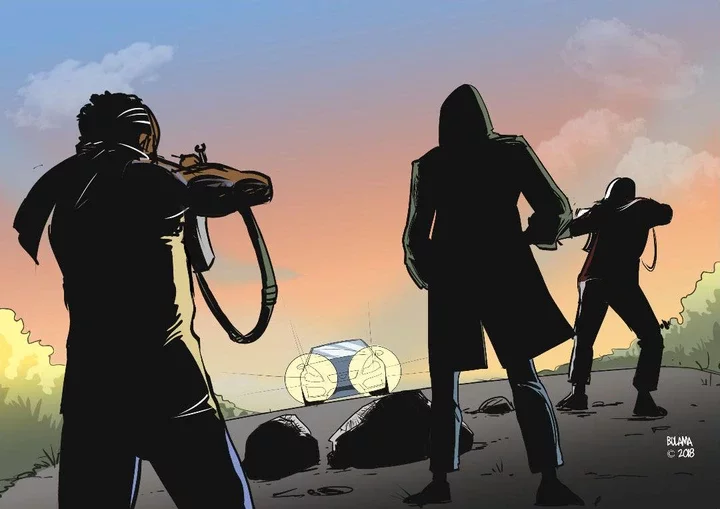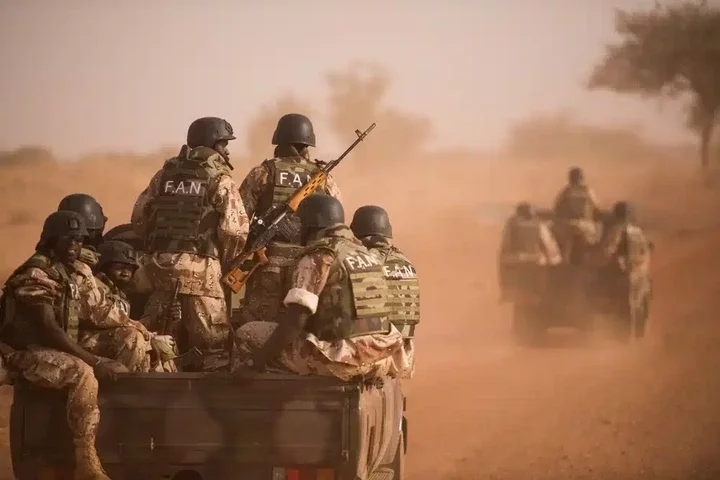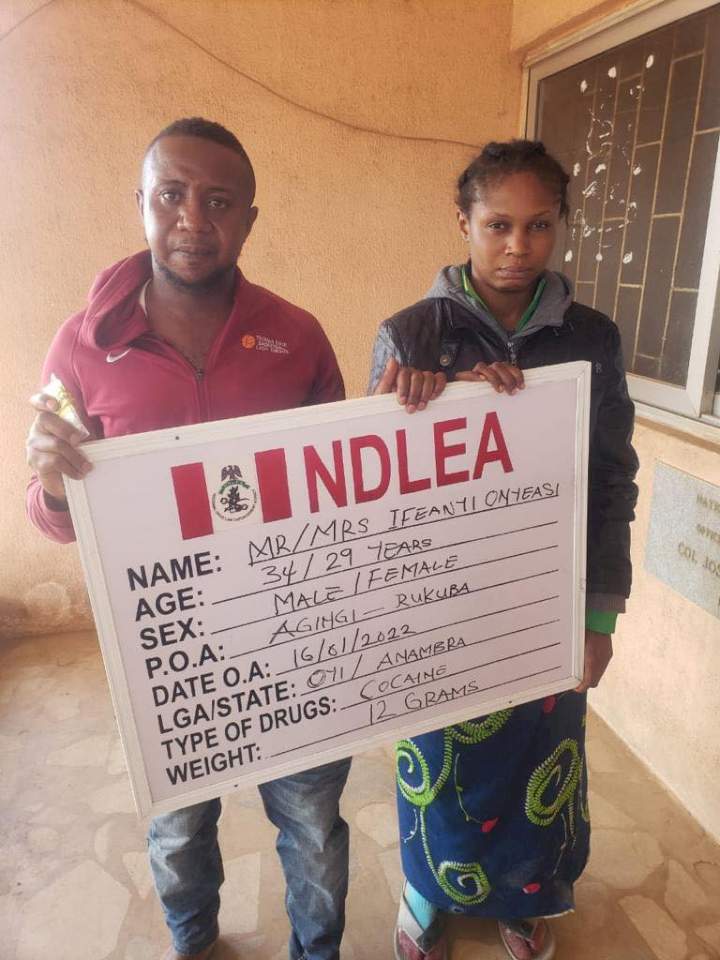
The president of the National Onion Producers, Processors and Marketers Association of Nigeria, Malam Aliyu Maitasamu Isah, speaks with OLAKUNLE MARUF on the consequences of the ongoing crisis in the Republic of Niger, especially the resultant closure of borders between Nigeria and Niger, for stakeholders in the onion business in Nigeria and beyond.
How are the sanctions imposed on Niger by ECOWAS affecting members of your association?
Nigeria is the second largest onion-producing nation in Africa. We share borders with countries like Niger, Benin, among others, through which we export our onions.
We supply up to 55 trucks of onions to Niamey in Niger every week. We also export our onions to Burkina Faso, Cote d'Ivoire, Benin Republic, Ghana and Togo. The closure of the borders is unfortunate because we must pass through Niger Republic to access some of these countries. We just woke up to the news of the closure.
It all started like a joke, the military takeover of government in Niger and the sanctions by ECOWAS [Economic Community of West African States]. These were not things we really prepared for, as onions from Kano were ready to be taken to Niamey (the Nigerien capital) and onions from Sokoto were set for transportation to other countries through Niger Republic.
Some of our members had even bought from Madaoua (a town in Niger) to supply other countries, but everything suddenly became grounded. The people of Niger cannot come to us and our onions going to other places cannot get to Niger. Those that have passed through Niger Republic en route to Ghana, Burkina Faso, were held on the way. I just showed you a video of some of our trucks. I just received a call from Mile 12 International Market in Lagos that we have more than 80 trucks of onions that are being held at the Cotonou border.
I am sure you know that onions are perishable, and the trucks have been held there for almost two weeks now. That, for us, is a huge economic loss and we don't know what to do.
Are there associations like yours in other countries, especially Niger?
Yes, there are.
What are they doing to intervene in this situation?
On Thursday, we got a report that two of our trucks on their way to Cote d'Ivoire were held at the border. What I did was to write a waiver with the letterhead of our regional association and send to Cote d'Ivoire. I also used our regional association to intervene and those two trucks were released immediately.
The main issues are the cases of the more than 80 trucks being held in Benin Republic and our trucks that are being at the Niger border. Even if they manage to come back, out of over 300 bags, hardly will you find up to 150 bags of onions that remain in good shape. About 50 percent of the onion will have become damaged.
There are lots of people that depend on this business. The main aspect of the onion business is exportation to countries like Niger, Burkina Faso and the rest of them. At least, every 30 minutes, I receive information from my people from all over the place for updates. I have also registered the problem with the Zonal Comptroller of Customs here in Sokoto State. Our Lagos chapter has also written to the governor of the state. There are about 40 trucks of onions coming to Mile 12; trucks from Sokoto to Niamey are 25 and those from Niamey to Ghana are 30 trucks; and those from Lagos to Ghana are about 25 trucks.
The value of the contents on the Lagos-to-Ghana trucks is no less than N900 millions while the value of ours (from Sokoto) is about N1.2 billion. These are rough estimates. As I speak with you, the cost of one bag of onions in Ghana is about 11 million cedi. That amount is equivalent to about N80,000, depending on the exchange rate, which is unstable at the moment.
Let's do a calculation at N80,000 per bag: Each truck carries 320 bags of onions. If you multiply 80,000 by 320 bags, it gives N25.6 million per truck. Multiply this by about 80 trucks and that is N2.48 billion. Find out from the Cotonou border, check from the Illela border and check our trucks coming to Nigeria. At Gada, which happens to be the largest onion-producing local government in Sokoto, there is a community there that shares close proximity with Niger. It is actually a Nigerien community, but it is better to access Niger from there than to try and access the country through the Nigerian borders.
People have to come through Niger and pass through the Illela border to bring the onions here. I can tell you that those onions have been intercepted in Niger. I have hardly slept before 2.00 a.m. since this issue started with everyone calling me for one thing or the other. I tell them that this is a Federal Government matter and there is little I could do. As I talk to you, they are not allowing us to take one bag of onions outside the country as long as you are to pass through Niger. Any other route that will give you access to Benin Republic or other countries, you are allowed, but you must do that with caution. You must get all the papers that will indicate that the onions are from Nigeria, because you will undergo scrutiny.
Can you give the estimate of what you have lost so far?
The N2.4 billion I was talking about is for the onions presently being held at the various border posts. About N900 million in the Lagos axis: If you go to Mile 12 International Market, you will understand better. The trucks that have been held for over two weeks now, even if they released them now, more than half of them will be damaged already. You can only understand this if you are in the onion business. Even from Sokoto to Lagos, if something happens in Jebba or Ogbomoso for just a day or two, you will see what happens to your goods, not to talk of two weeks. That is just Cotonou border; we are not talking of other borders. The two trucks I facilitated their release was because the man involved spoke with me. Maybe there are others out there who don't think of talking to the president for intervention.
There are also trucks at the Illela border. We have trucks in Rafin Duma, Sabon-Birni, Tangaza. Rafin Duma is through Gada and we know the importance of Gada onions. You can contact anyone to ascertain the number of trucks that are being held in Rafin Duma, Illela, Kamba and others. If you attempt to access Niger, they will arrest you and your truck immediately.
Some of your members who were coming back home after offloading were not allowed entry in Nigeria even with their empty trucks.
Yes, the situation is totally messed up and unfortunate. We don't know what to do. That is why I told you I have not been able to sleep well since. There is a truck outside which was scheduled to go to Niame, but after loading the truck and realising that the road was not good, I told them to go and look for what to do. Some of these onions were brought to sokoto.
Right now in Sokoto, we are in the off-season for onions. There is one area between Kano and Kaduna where they produce more of wet-season onions and one thing about the wet-season onions is that you can keep them for long, coupled with the fact that they use leather bags instead of normal bags to allow air. Whenever there are restrictions, the majority of the onions will rot.
Even in Lagos now, a bag of onions is almost N70,000, not to talk of Ghana. There is a report that Ghana people were complaining about the price of onions. They said it is skyrocketing. I told you it was around 8 million Ghana cedi before the close of borders, but it has jumped to 11 million cedi and it still going up.
How many members does your association have?
We have over 1.2 million members, that is, producers; we are not talking about marketers. We have more of the marketers in the South and more of the producers in the North.
If you were to advise the Federal Government, what would you tell them?
Let me call on the heads of ECOWAS-member countries to remember that the main objective of the organisation is economic progress and for us to share goods and services, to share and transfer technology and to expand the African market. We have this market, African Continental Free Trade Area. Although nobody is supporting the military toppling a democratically elected government, I do not believe that our main aim should be to interfere in the governance of another country. We are not in support of military junta and ECOWAS should find a diplomatic way to solve this problem.
They should not allow themselves to be influenced by some foreign forces who want to use us to test their powers. One will say they are supporting Niger Republic while some will say they are in support of ECOWAS. Let's go back to the drawing board, look at the problem and find a diplomatic way to solve it with the coup leaders.
We, Africans, should never allow ourselves to rise against our fellow African countries. It will be to our own detriment. We need to be focused. We have a lot of issues to focus on. Nigeria will be the one to blame despite the fact that it is ECOWAS that wants to intervene militarily. They have given us a bad name before the bad things start happening. We remember what has happened to Ukraine in its war against Russia. We need peace, and peace is more important than anything else.
Do you think Nigerians will enjoy good relationship with our neighbours if ECOWAS makes good its threat to Niger?
We need to embark on sensitisation and enlighten the people of Niger that what happened was not the decision of Nigerians but that of ECOWAS and urge them not to put the whole sentiment on us. We need to let our brothers understand that all Nigeria wanted was to take power back from the military and return same to their democratically elected government. The president of our onion association is from Niger and I have told him that, which he understands and he is helping us to educate our members over there.
By the time we do such sensitisation, I believe our relationship with them will be good, plus they depend on us despite the fact that they also produce onions. I told you we still send about 55 trucks to Kasua Dolie in Niamey, one of the biggest markets in Niger.
What advice do you have for your members on the current situation?
My advice for members of this association is that whenever they want to export onions to other African countries, they should do proper documentation, including certificate of origin, organisation, receipt and others. These are what will indicate the source and that the owner is from Nigeria.
Onion is very expensive now, even here in Sokoto. It is above N40,000, so you can't load about 320 bags. As we speak, one of my trucks bound for Ghana is being loaded. It will pass through Benin Republic, and I must ensure I do proper documentation before it leaves so that we will not be harassed on the way.
















Comments